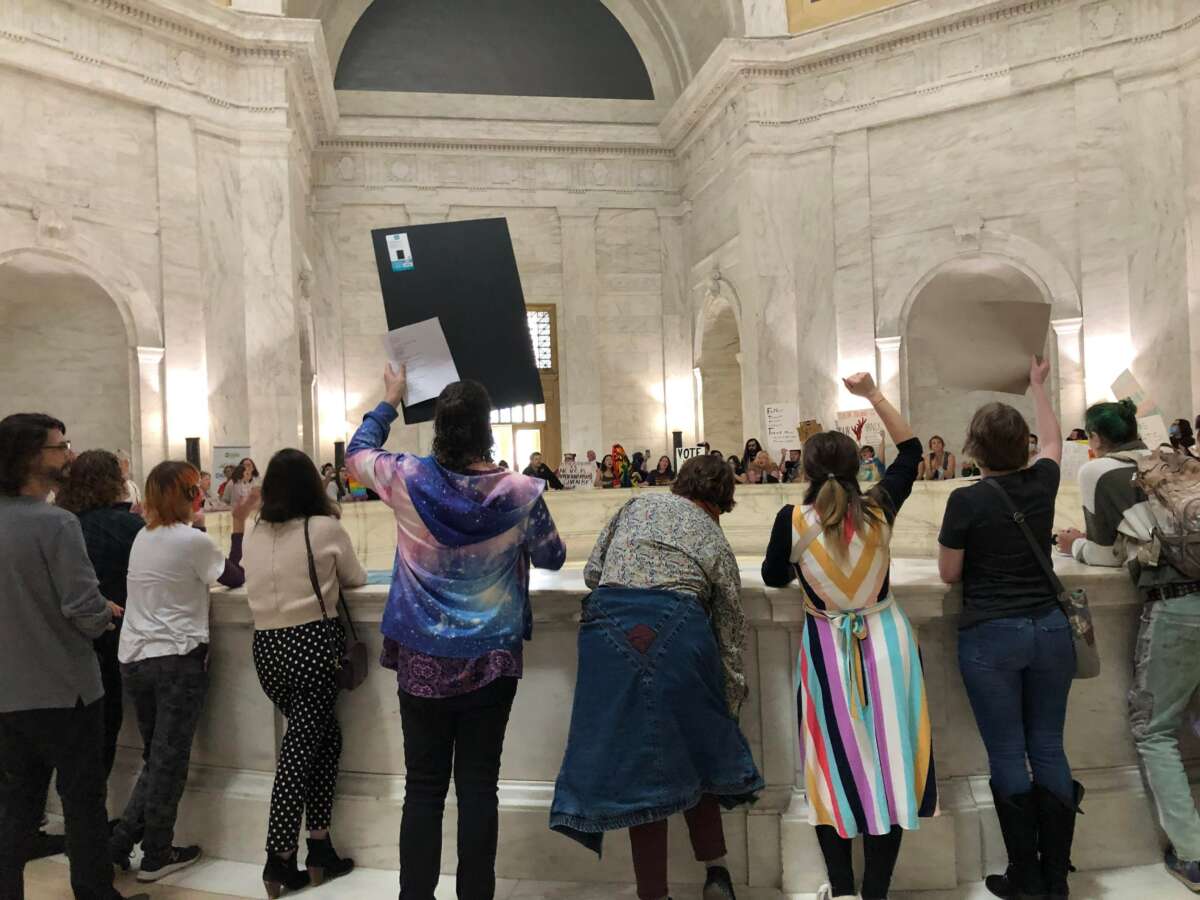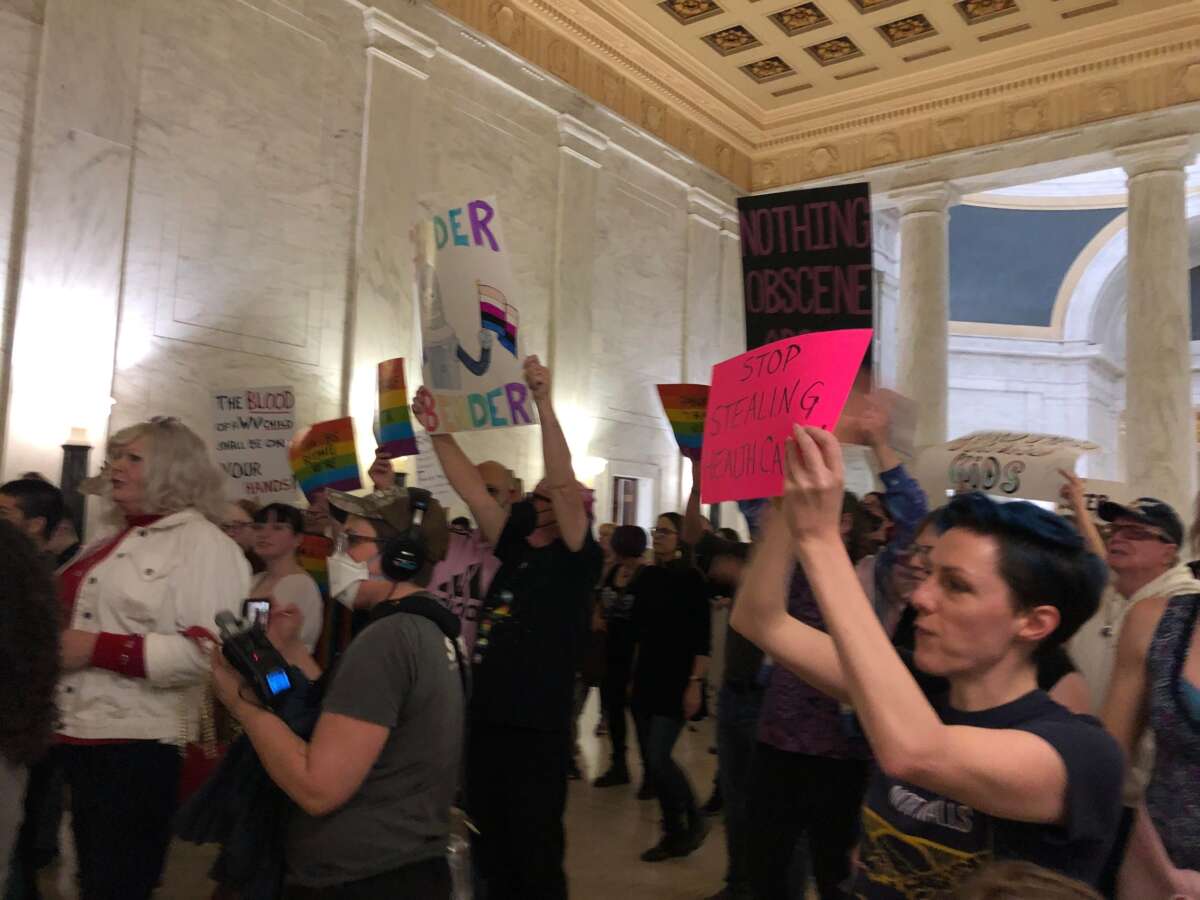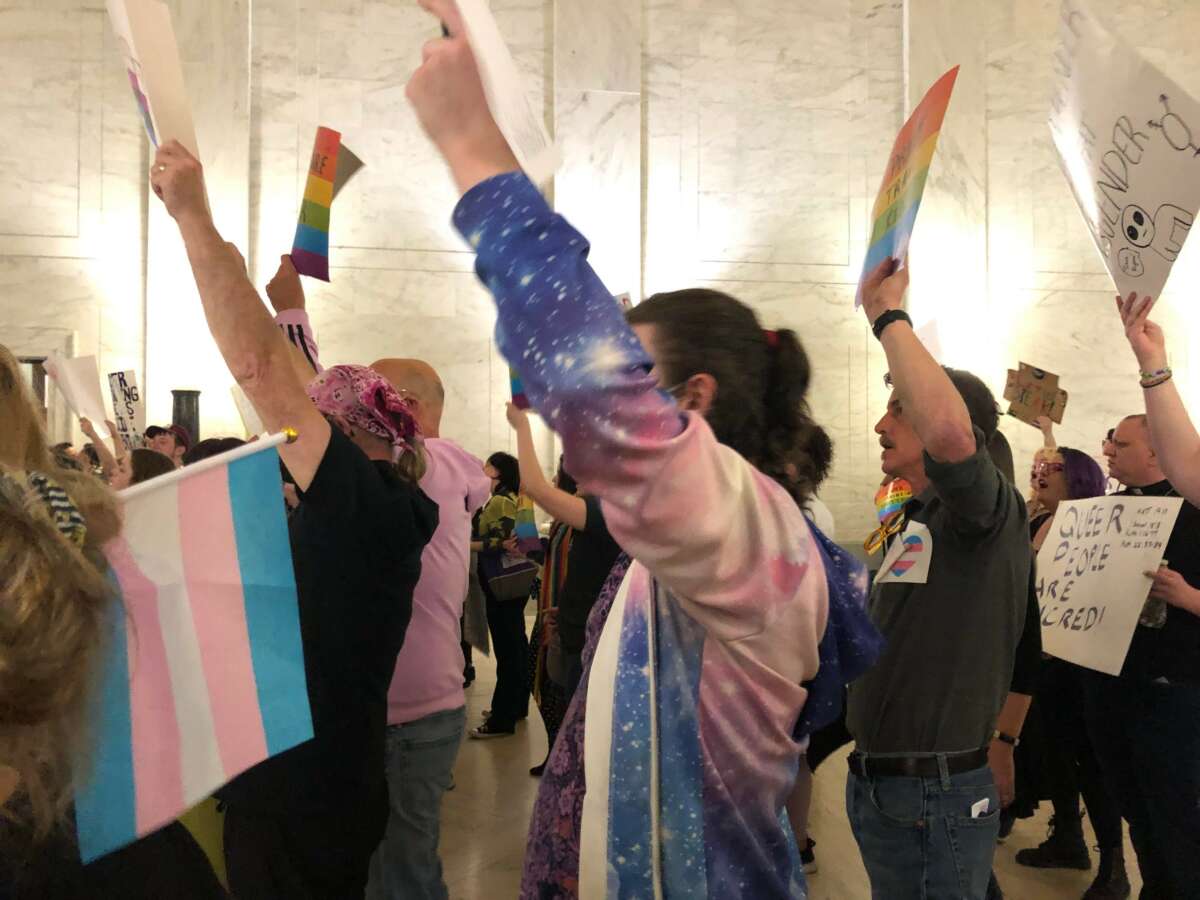On Wednesday, House Bill 2007, a bill that would ban gender-affirming care for transgender youth in West Virginia, passed the state Senate judiciary and advanced to the Senate floor.
Transgender advocates anticipate that a vote could be held as soon as tonight in the Republican-controlled Senate, and are packing the West Virginia state capitol to protest the legislative attacks on the state’s LGBTQ community.
“It’s time to show our lawmakers that the LGBTQ+ community of WV will not tolerate these attacks on our rights and freedoms,” trans Appalachian organizer Ash Orr, co-founder of the West Virginia Transgender Coalition, said on Twitter. “We will continue to organize, to care for one another, and to fight the good fight.”
In February, HB 2007 was approved by the West Virginia House of Delegates in an 84 to 10 vote. The advancement of the bill was condemned by the Human Rights Campaign (HRC), the American Civil Liberties Union of West Virginia, and Fairness West Virginia.
After the passage of HB 2007, a sitting member of the West Virginia Legislature, Republican Delegate Ty Nestor, verbally attacked an investigative reporter who works at ACLU-WV, calling him homophobic slurs over the phone. Delegate Nestor was one of 65 representatives who voted for HB 2007.

“This law is one of many dangerous efforts far right political extremists and national anti-LGBTQ+ organizations have launched in West Virginia and across the country against transgender youth and their families…these bans directly place the health, safety and wellbeing of transgender youth in West Virginia at risk,” the HRC said in a press release.
This bill is one of more than 100 bills across the country that are part of a concerted far right effort to criminalize transgender people and restrict their access to lifesaving health care.
In West Virginia alone, conservative lawmakers are advancing more than 10 anti-trans bills, including laws that would bar minors from attending drag shows and criminalize drag performers if a minor is present, ban Medicaid from covering gender-affirming surgeries for trans children and adults, and prohibit punishment for teachers who consciously misgender students.

Despite Republicans alleging — contrary to the professional opinions of medical experts — that they are acting in the best interests of West Virginian youth, the state Senate recently rejected a bill that would have prohibited child marriage in the state. West Virginia currently has the highest rate of child marriages in the country, with over 3,600 marriages occurring since 2000.
“Nothing says ‘I care about the well-being of children’ like *checks notes* killing a bill to end child marriage and passing a bill to ban access to lifesaving health care for trans kids,” Renee Alves of the West Virginia Center on Budget and Policy wrote in response to the rejected bill. “My heart hurts for WV children today. Each legislative session feels crueler than the last.”
In 2017, UCLA researchers estimated that West Virginia had the highest percentage of trans youth in the country. Over 700 children could potentially be affected by a state ban on gender-affirming care if it is passed by the Senate.
“[Gender-affirming care] is medically necessary, lifesaving care, and House Bill 2007 will kill trans youth,” said Isabella Cortez, gender policy manager with Fairness West Virginia.
Join us in defending the truth before it’s too late
The future of independent journalism is uncertain, and the consequences of losing it are too grave to ignore. To ensure Truthout remains safe, strong, and free, we need to raise $48,000 in the next 8 days. Every dollar raised goes directly toward the costs of producing news you can trust.
Please give what you can — because by supporting us with a tax-deductible donation, you’re not just preserving a source of news, you’re helping to safeguard what’s left of our democracy.
